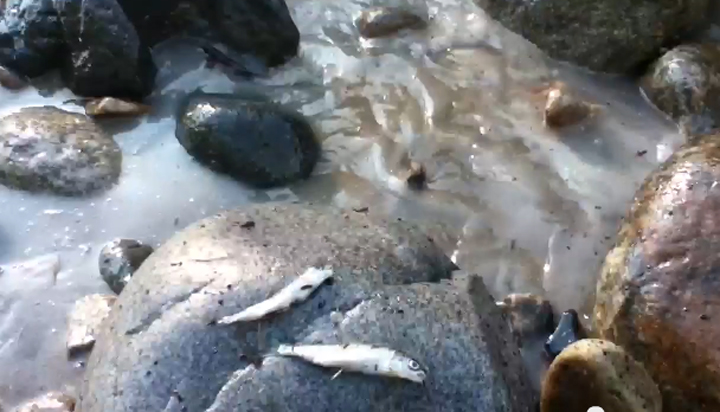UPDATE: Water restrictions for the Slocan River north and south of the Winlaw Bridge and nearby containment booms have been lifted by Interior Health, two weeks after the fuel spill into Lemon Creek.

According to the health authority, water drawn from the area may now be consumed and is safe for recreational purposes.
Water restrictions for Lemon Creek and the Slocan River north of the Winlaw Bridge were lifted Friday afternoon. Restrictions for south of the bridge were lifted Thursday. .
Although the health authority said in most cases well water is not affected, shallow wells close to the creek or rivers, especially those with gravel or sandy soils, may be impacted. If residents smell fuel in their well the water should not be used.
All water sample data from south and north of the Winlaw Bridge provided by the Ministry of Environment and agencies hired by Executive Flight Centre now meet the Canadian Guidelines for Drinking Water and clean-up efforts are now complete for that area.
Visual assessments of the shorelines and containment booms did not detect levels of fuel that pose health concerns.
However, residents are still urged to flush their drinking and irrigation water systems thoroughly to clear any stagnant water in the lines.
If residents still have concerns about their water after flushing or smell fuel, they can contact IH Health Protection at 250-420-2220.
The cause of the July 26 crash that sent 35,000 litres of jet fuel spewing into Lemon Creek is still under investigation.
Residents of the area have launched a lawsuit against the province of B.C. and Executive Flight Centre, alleging the fuel depot was set up in an environmentally sensitive area without due care and the spill created a dead zone.
Since the spill, some residents have complained of health problems including skin rashes, fumes in furniture and clothing and economic hardships.
With files from the Canadian Press


Comments